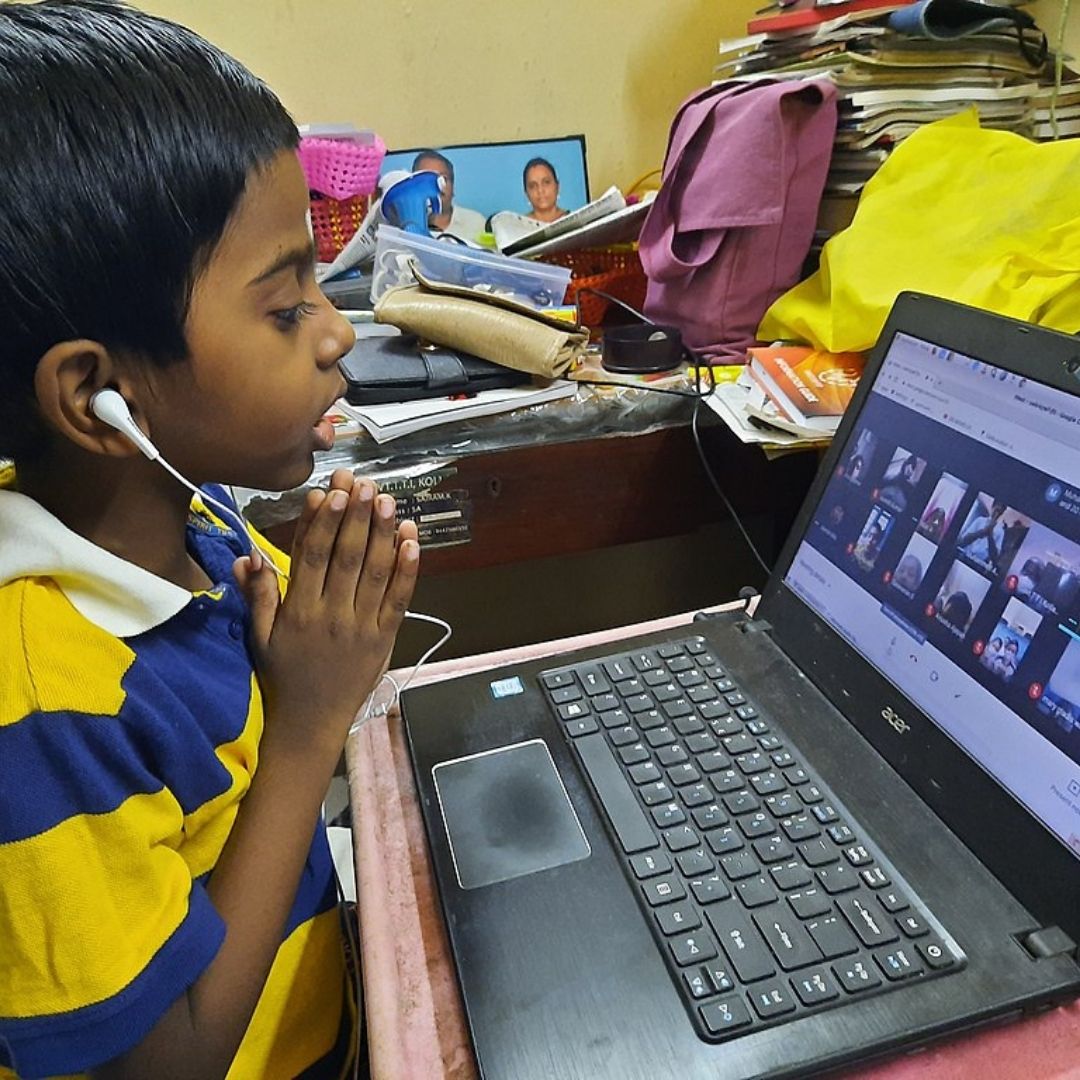
Image Credit: Wikipedia
Karnataka: Only 30% Children Attended Online Classes During Lockdown
Writer: Ratika Rana
Her primary objective is to inform, promote, educate and cultivate readers through writing.
Karnataka, 12 Dec 2021 8:59 AM GMT
Editor : Ankita Singh |
A literature lover who likes delving deeper into a wide range of societal issues and expresses her opinions about the same. Keeps looking for best-read recommendations while enjoying her coffee and tea.
Creatives : Ratika Rana
Her primary objective is to inform, promote, educate and cultivate readers through writing.
The research primarily aimed to study the circumstances of the families during the lockdown period and submit recommendations to the governments and other stakeholders.
During the pandemic-induced lockdowns, only 30 per cent of children attended online classes, while 70 per cent were engaged in agricultural activities and helped their parents. A state-wide study revealed that most of the children also spent their time watching television and playing games on mobile phones. The study, conducted by the Karnataka Child Rights Observatory (KCRO), aimed to understand children's situation in terms of health, immunization, education, nutrition, and protection. The organization also aimed to study the circumstances of the families during the lockdown period and submit recommendations to the governments and other stakeholders.
Outcomes Of The Survey
The survey also showed some positive trends regarding the distribution of mid-day meals and reported that a whopping 85 per cent of students received their ration during the lockdown, and only 15 per cent did not receive their midday meals. Moreover, almost 81 per cent of them said they received eggs and balamrutham (weaning of food prepared from wheat, chana dal, milk powder, oil and sugar). The provisions were a part of supplementary nutrition food that was supplied from Anganwadis to the students' homes. About 77 per cent of families also reported that the Anganwadis ensured that food reached children even after the lockdowns were lifted, The Times of India reported.
Other Findings Of Report
Other key findings of the report pointed towards an increase in child labour during the lockdowns and subsequent shutting down of schools. Unfortunately, the state witnessed a 43 per cent increase in child marriages during the lockdowns. However, 79 per cent of the respondents mentioned that emergency services were available to them at all times during the lockdowns.
The study was supported by United Children's Education Fund (UNICEF), Hyderabad and several other NGO partners. It was conducted across 20 districts across the state, and it focused on 513 adolescents, 50 men and 510 women.
Also Read: Privatising Public Banks: Why Is It An Unsafe Bet By The Government?
 All section
All section














